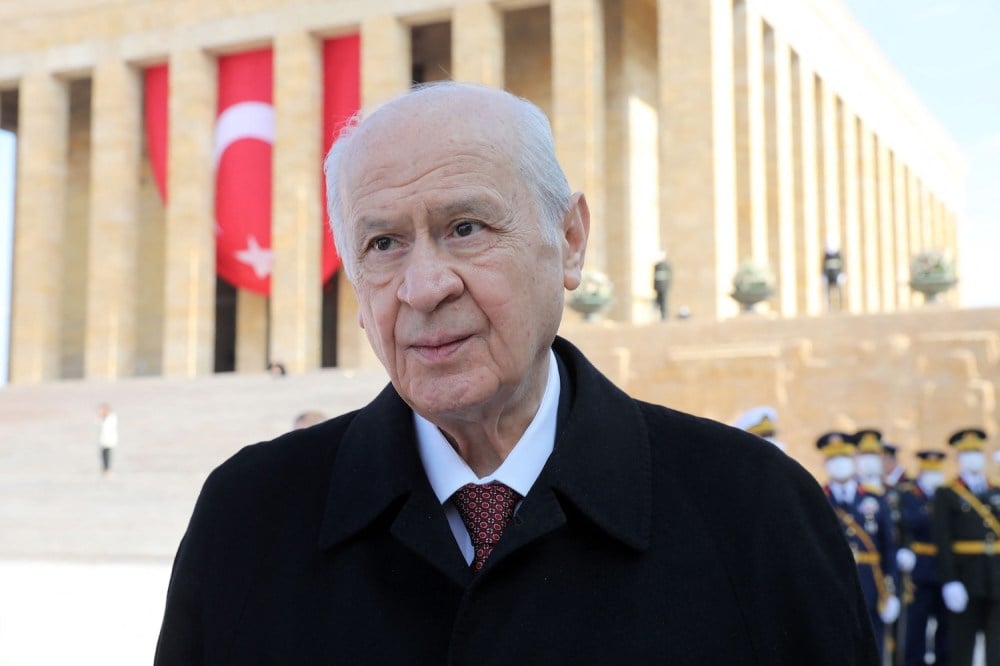Introduction
As Turkey confronts a complex political landscape, discussions have emerged regarding the potential for Devlet Bahçeli, leader of the Nationalist Movement Party (MHP), to enact transformative changes akin to those implemented by F.W. de Klerk in South Africa. This analysis examines the parallels between their political trajectories and assesses the feasibility of such a transformation in Turkey’s current context.
F.W. de Klerk: Architect of South Africa’s Transition
F.W. de Klerk, serving as South Africa’s State President from 1989 to 1994, played a pivotal role in dismantling the apartheid system. His tenure was marked by significant reforms, including:
- Unbanning Political Organizations: In 1990, de Klerk lifted bans on the African National Congress (ANC) and other anti-apartheid groups, facilitating inclusive political dialogue.
- Release of Nelson Mandela: He ordered the release of Nelson Mandela after 27 years of imprisonment, symbolizing a commitment to reconciliation.
- Negotiated Transition: De Klerk engaged in negotiations that culminated in the 1994 democratic elections, leading to majority rule and the end of institutionalized racial segregation.
These actions earned de Klerk, alongside Mandela, the Nobel Peace Prize in 1993, recognizing their efforts in peacefully transitioning South Africa to democracy.
Devlet Bahçeli: A Stalwart of Turkish Nationalism
Devlet Bahçeli has been a prominent figure in Turkish politics, leading the MHP since 1997. Known for his nationalist stance, Bahçeli has influenced Turkey’s political direction through:
- Coalition Politics: Aligning with President Recep Tayyip Erdoğan’s Justice and Development Party (AKP), Bahçeli has bolstered the ruling coalition’s parliamentary strength.
- Policy Influence: Advocating for nationalist policies, including a firm stance against Kurdish separatist movements and a strong national security agenda.
Recently, Bahçeli proposed initiating dialogue with Abdullah Öcalan, the imprisoned leader of the Kurdistan Workers’ Party (PKK), suggesting that Öcalan could be granted parole if he renounces violence and dissolves the PKK. This proposal indicates a potential shift in Bahçeli’s approach to Turkey’s longstanding Kurdish issue.
Comparative Analysis: Potential for Transformation
While both leaders have held significant sway in their respective nations, several factors influence the potential for Bahçeli to effect transformative change similar to de Klerk:
Political Context
De Klerk operated within a system facing international isolation and internal unrest due to apartheid. His reforms were driven by the necessity to reintegrate South Africa into the global community and address internal strife. In contrast, Turkey’s political environment is characterized by a complex interplay of nationalism, security concerns, and regional dynamics, with less external pressure for systemic change.
Leadership Dynamics
De Klerk held the highest executive office, granting him the authority to implement sweeping reforms. Bahçeli, as a coalition partner, exerts influence but lacks the executive power to unilaterally initiate comprehensive changes. His role is more advisory, relying on collaboration with Erdoğan and the AKP.
Public Sentiment and Support
De Klerk’s initiatives were met with both support and resistance, necessitating careful navigation of public opinion. Bahçeli’s recent overtures toward dialogue with Kurdish leaders may face skepticism from his nationalist base, requiring strategic communication to garner broader support.
Broader Implications for Turkey’s Future
Bahçeli’s proposal to engage with Öcalan could signal a shift toward addressing Turkey’s Kurdish issue through political means rather than military action. If pursued, this approach may lead to:
- Reduced Conflict: Potential de-escalation of hostilities in southeastern Turkey.
- Political Inclusion: Greater representation and rights for Kurdish populations within the Turkish political framework.
- International Relations: Improved relations with Western nations advocating for human rights and minority inclusion.
However, these outcomes depend on the government’s commitment to genuine dialogue and the willingness of all parties to engage constructively.
Conclusion
While Devlet Bahçeli’s recent initiatives suggest a possible shift in addressing Turkey’s internal conflicts, the extent to which he can emulate F.W. de Klerk’s transformative leadership remains uncertain. Factors such as political authority, public support, and the broader geopolitical context will play crucial roles in determining the success of any proposed reforms. As Turkey navigates its complex political landscape, the potential for significant change hinges on collaborative efforts and a shared vision for the nation’s future.
See more BBC Express News

